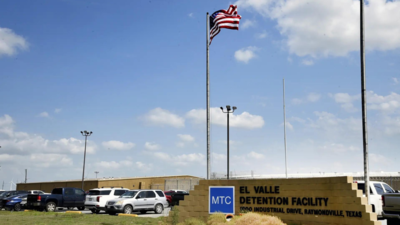
Representative image (Picture credit: AP)
A federal judge in Pennsylvania on Tuesday ruled that the Trump administration can invoke the 1798 Alien Enemies Act (AEA) to deport Venezuelan nationals alleged to be members of the gang Tren de Aragua, marking the first court decision to endorse such use of the centuries-old wartime law.US district judge Stephanie Haines, a Trump appointee, issued the ruling in the case of a Venezuelan man identified as ASR, who denies being a gang member. Haines ruled that the administration may proceed with deportations under the AEA, but only after giving individuals at least 21 days' notice in both English and Spanish and ensuring they have an "opportunity to be heard" in court. Interpreters must also be provided when necessary.The decision contrasts with rulings from judges in Texas, Colorado, and New York, who previously found that US President Donald Trump's use of the AEA was legally flawed. Those courts said mass migration or alleged gang membership did not meet the law’s wartime standards, which refer to acts like “invasions” or “predatory incursions.”As per The New York Times, Judge Haines’ order allows deportations within her jurisdiction in western Pennsylvania, which includes the privately operated Moshannon Valley Processing Center.
Haines said her court had jurisdiction despite ASR being transferred to Texas in violation of a temporary restraining order she had issued.Although Judge Haines did not determine whether ASR was a member of Tren de Aragua, she criticised the administration’s prior practice of deporting some people “within a matter of hours,” and stated such actions risk the wrongful removal of individuals who are not gang members.“This case poses significant issues that are deeply interwoven with the constitutional principles upon which this Nation’s government is founded,” Haines wrote.The Trump administration declared Tren de Aragua a foreign terrorist organisation earlier this year and began deporting alleged members, many to El Salvador’s CECOT prison under a $6 million arrangement. According to The New York Times, US officials use an eight-point system, including tattoos and clothing, to determine alleged gang ties.Lee Gelernt of the American Civil Liberties Union (ACLU), who is representing ASR, said the ruling would be appealed. “We strongly disagree with the Court’s decision to allow the government to continue using this wartime authority during peacetime,” Gelernt said. However, he welcomed the court’s insistence on giving people due process instead of “removing them in a mere 12 hours.”Another federal judge in Texas, David Briones, temporarily barred the administration from deporting a Venezuelan woman held in El Paso under the same law.
According to news agency AP, Briones said she was likely to succeed in proving that the proclamation violated due process and wrongly portrayed Tren de Aragua as equivalent to a foreign invasion.The Supreme Court had earlier allowed the administration to continue using the AEA on the condition that deportees are given a chance to contest their removal. With conflicting lower court rulings now in place, the matter is expected to escalate again to the Supreme Court.

 6 hours ago
35
6 hours ago
35




























 English (US)
English (US)